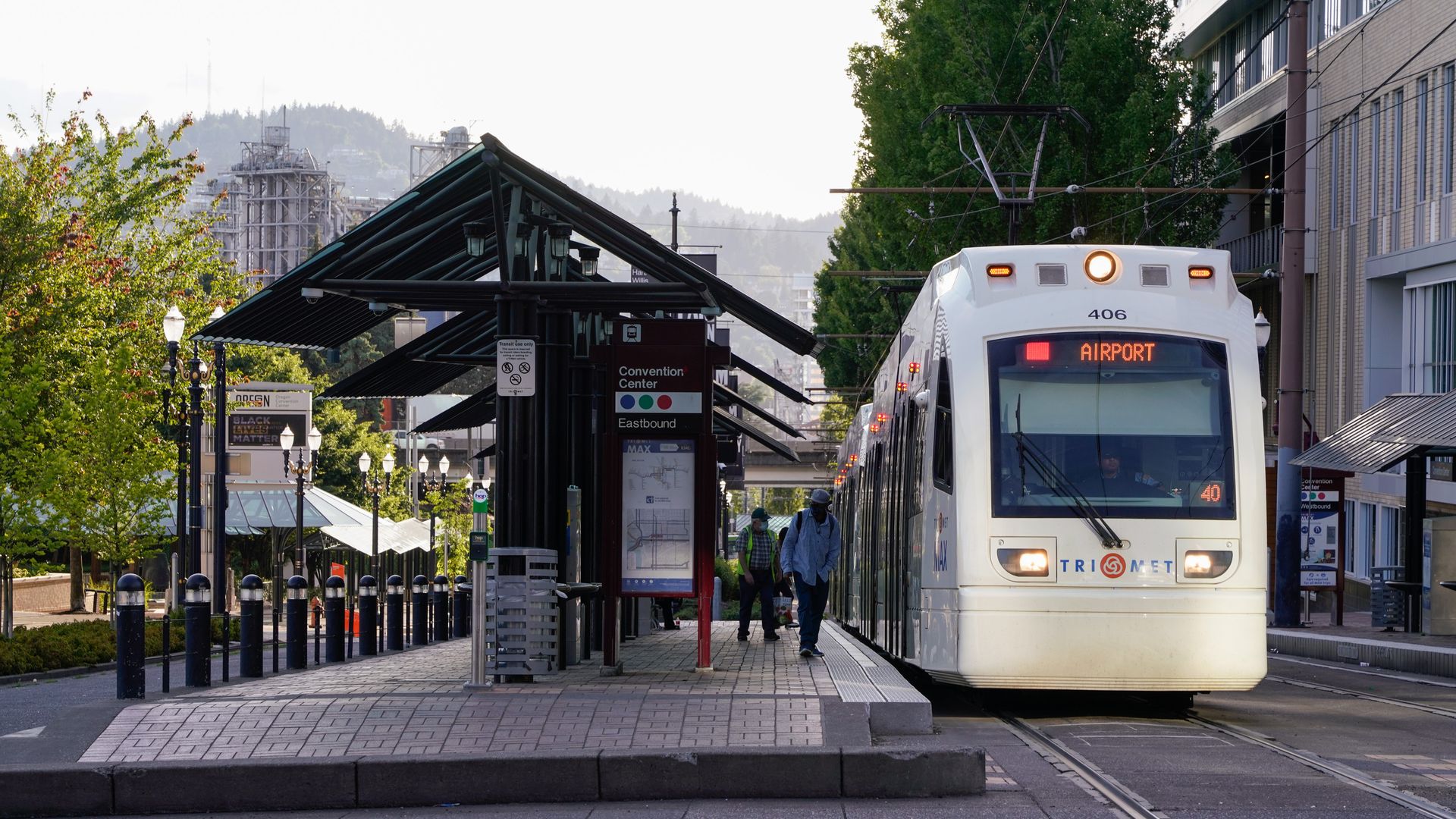Traces of fentanyl and meth linger on Portland public transit
Add Axios as your preferred source to
see more of our stories on Google.

Photo: Rebecca Smeyne/Bloomberg via Getty Images
Researchers are recommending upgrading air filters on buses and trains after finding trace amounts of fentanyl and methamphetamine on public transit, including on TriMet trains in Portland.
The big picture: Public health officials say the drug levels weren't high enough to pose a risk to the public, but the long-term effects on drivers working in such conditions haven't been thoroughly studied, the researchers said.
Why it matters: Transit agencies have reported frequent drug use on buses and trains, which some drivers fear is compromising their health from secondhand exposure.
What they did: University of Washington researchers collected dozens of samples from 11 buses and 19 trains across five Pacific Northwest transit agencies, including 11 TriMet trains.
What they found: Of 78 air samples taken from across the five agencies, researchers detected small levels of methamphetamine in all of them.
- They also found methamphetamine in 100 of 102 surface samples they collected.
- Fentanyl was detected in a quarter of the air samples and nearly half of the samples taken from surfaces.
Yes, but: "Just because we can measure it in the lab does not necessarily mean it's at a level that can pose a health risk to operators or riders," said Marissa Baker, a UW assistant professor of environmental and occupational health sciences who co-led the assessment.
- However, Baker told reporters at a press conference Thursday, "there isn't a lot of research as to what levels may cause health effects and after how much time."
State of play: Neither Oregon nor Washington nor the federal government have enforceable standards for what level of fentanyl or methamphetamine exposure is appropriate in the workplace, Baker said.
- With that in mind, the researchers recommend "controlling exposure to the lowest level that is reasonably achievable," she said.
- That means adopting enhanced cleaning protocols and upgrading air filtration systems on transit to a MERV-13 efficiency standard, or at least to the highest feasible standard, the research team said.
What they're saying: TriMet said that although many of its buses have the recommended MERV-13 level of filtration, its MAX trains use slightly lower-efficiency MERV-10 filters.
- That's the highest level of filtration approved for the trains' existing HVAC systems, the agency said.
- Spokesperson Roberta Altstadt told Axios that with more than 140 light rail vehicles systemwide, each of which has two HVAC systems, the cost of replacing them all "would be substantial."
What we're watching: Whether future research delves deeper into the health effects of prolonged exposure to traces of fentanyl and methamphetamine in the workplace.
